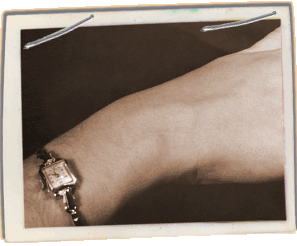with Our Personal Time
| |
|
|
|
|||
| |
|
|
|
|||
|
|
||||||
|
|
Time Bandits page 4 of 5 | |||||
|
|
||||||
|
|
How Work Sneaks Away with Our Personal Time |
|
Jennifer Vogel & Robin Marks | |||
|
|
|
|
|
|
|
|

|
"We're asked to value the individual at work," says
Hochschild, "and nobody's quite holding that ideology at home. It's
tempting, therefore, to emotionally relocate to the workplace."
An onslaught of new technologies makes that move easier than ever. We can, in fact, permanently keep ourselves at work, no matter where we are. We've got cell phones that read the internet, e-mail, and faxes; beeper watches and radios; palmtop computers that can organize meetings and contacts and scan business cards; and daily planners to help us determine our priorities. Technology has led to overload: One source estimates that secretarial staff, on average, face more than 190 daily correspondences including post, email, faxes, phone calls, voice mail, sticky notes, pager messages, courier deliveries, and internal mail. If you carry a pager for work, do you think your boss gave it to you for your convenience? Think again. According to the Fair Labor Standards Act, you're not considered "compensable" unless you're sufficiently inhibited from engaging in personal activities. Pagers make it possible to keep employees on-call at no extra expense, whereas companies have to pay employees who sit by the phone. So even though you might be interrupted at the family picnic or called away from a romantic dinner, time on the edge waiting for the beep or vibration isn't considered work. The overwhelming level and ease with which workers, bosses, and clients can communicate with each other has dramatically blurred the line between work and personal time. |
|||||||||||||
|
|
||||||||||||||
|
|
|
|
||||||||||||
|
|
 |
|
||||||||||||
|
|
Web Lab |
|||||||||||||